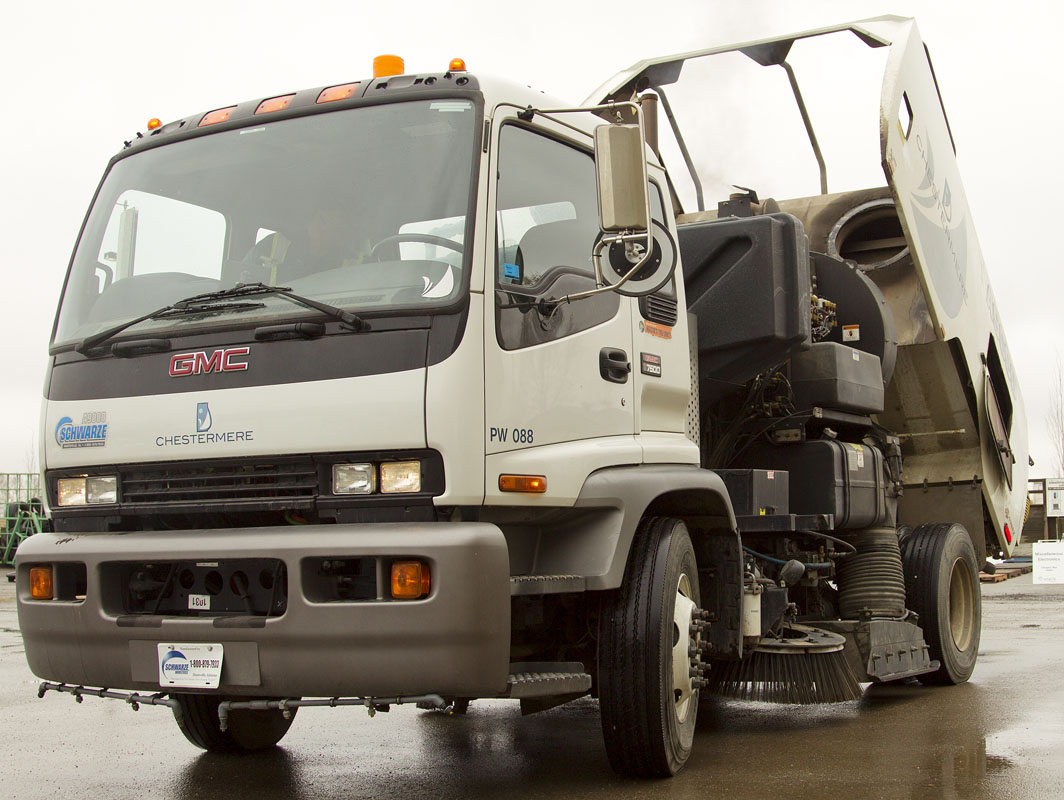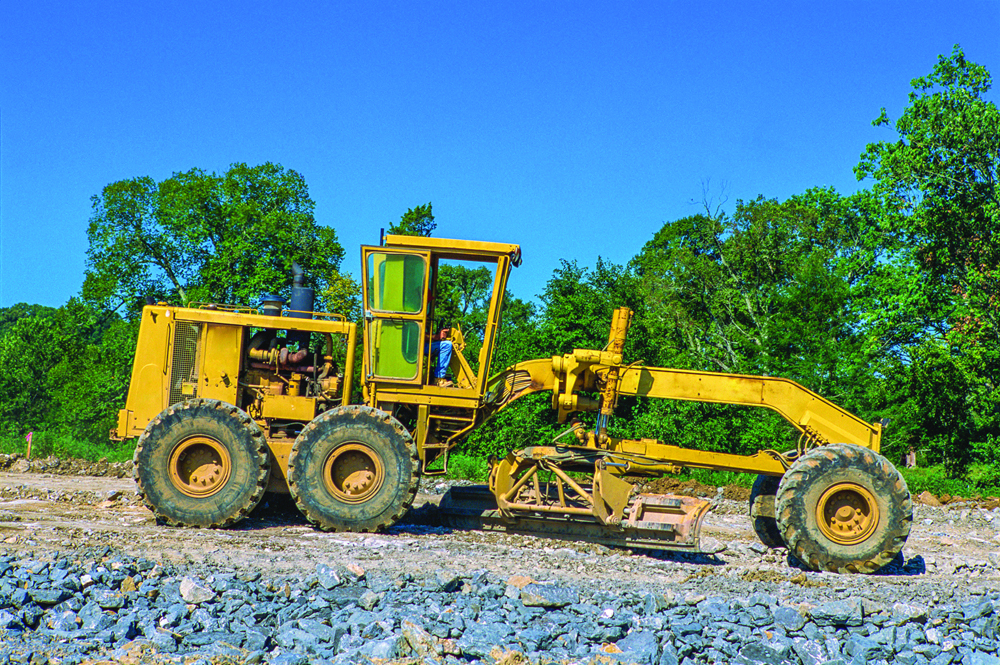
Despite the return of wintry weather last week, Chestermerians will notice roads crews getting to some spring cleaning with street sweeping underway in Chestermere.
“Our main goal is to get everything off the ground in a timely fashion but in a safe way as well,” said Chestermere Roads Supervisor Greg Perrault.
The reason the city clears the streets every spring is to address safety concerns posed by debris on the road.
Streets are also cleared to prevent the debris from clogging and damaging the city’s storm water system.
“We don’t want the debris from winter to fall into and clog up our storm system,” Perrault said, “so we try and make sure we get that before we start seeing the rainy system.”
The city operates a fleet of three street sweepers. There are two larger trucks that are the main sweepers collecting the bulk of road debris.
There is also a third smaller truck used to clear cul-de-sacs and city parking lots.
“It’s a little bit smaller and helps us maneuver into tighter areas,” said Perrault.
Like in the winter with snow clearing, roads crews follow a priority system when cleaning the streets.
Major roads that receive the most sanding and traction products through the winter are swept first.
“We call that bulk sweeping, so we’ll go out and get the highways the major arteries and pick up the large amounts that we dropped over the winter,” he said.
Once these roads are completed, the city uses a system of zones dividing the rest of the city to quickly and efficiently clean up the rest of Chestermere’s roads.
The goal of roads crews is to spend three to four days cleaning in each zone before moving onto the next one.
As crews move from neighbourhood to neighbourhood they ask that residents move vehicles and other personal property off the streets.
“We ask our residents to…help us the best they can with removing all objects including sports equipment, bumper pads for driveways so that we can get into these areas more efficiently,” he said.
Temporary road signs along with social media posts and information on the city’s website are used to alert residents when street sweeping crews will be working in their neighbourhood.
“We do give our residents 24-hours notice before we enter into a zone,” said Perrault, “we love to give lots of notice.”
When vehicles aren’t moved bylaw officers use a graduated approach to enforcement.
“Generally, what they’ve done in the past is given warning tickets to residents, just to remind them that we’re in the area and we hope within the next day that they’ve complied with that and moved their vehicle,” he said.
After the warning, enforcement increases and can include a fine of $75.
The process of street sweeping involves both the sweeping trucks and ground crews comprised of two to three people wearing high visibility vests.
“Generally, about five to six staff we designate to do this.
“This is a pretty big maintenance schedule for us,” said Perrault.
The grounds crews clear large heavy debris that could damage the sweepers.
As the street sweepers are very slow moving vehicles it is often easy for traffic to pass them as they are cleaning near to the curbs.
Perrault reminds drivers though to pass with caution and be aware of both oncoming traffic and that the ground crews may be on the road ahead of the sweeping truck.
“Proceed with caution and keep in mind that there are a few ground crew members out there,” he said.
Each of the larger trucks can work for about one to one and a half hours before they need to empty their debris tanks.
“We…try and have a dump truck onsite in the zone for more efficiency,” he said, “so they’ll fill that so they can stay in the area.”
The collected debris is stored at public works and is used, often by local farmers, for compaction fill. A common use for the debris is the filling of potholes in farmer’s private driveways.
Street sweeping is weather dependent and generally lasts from April until June in Chestermere.
For more information or to see a map with the street sweeping zones go to http://www.chestermere.ca/190/Street-Sweeping.
To contact the roads department call (403) 207-2807







